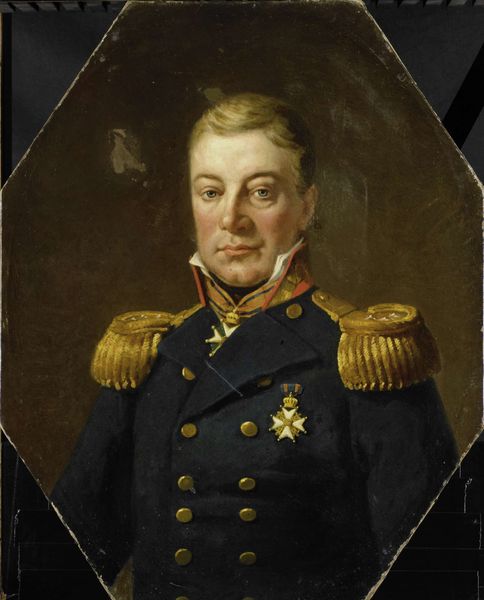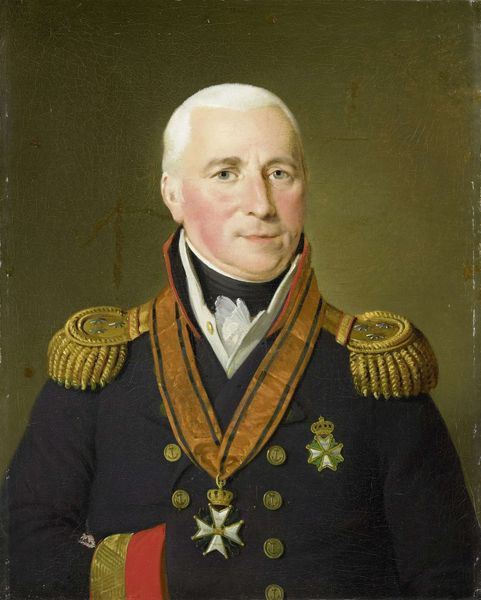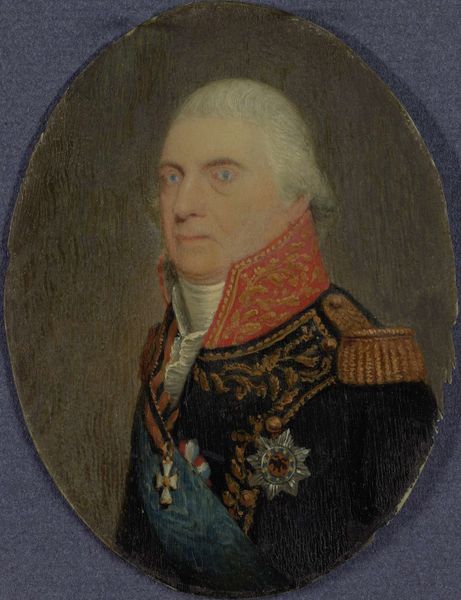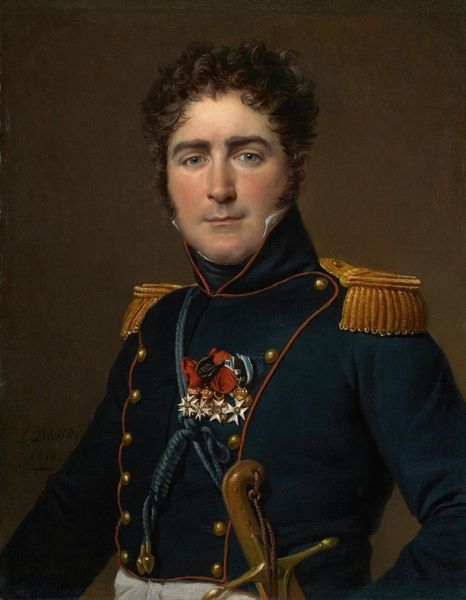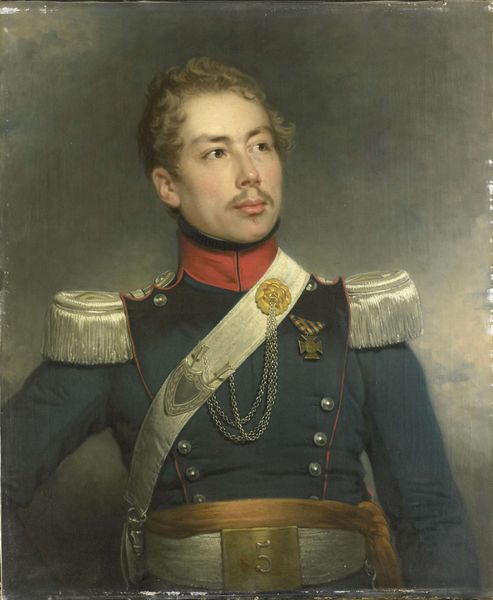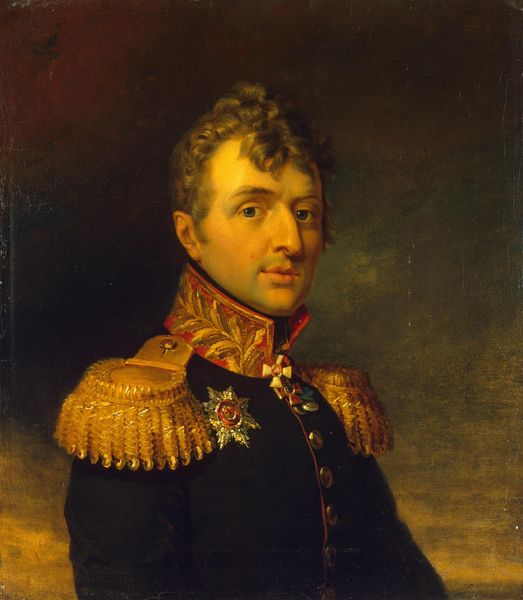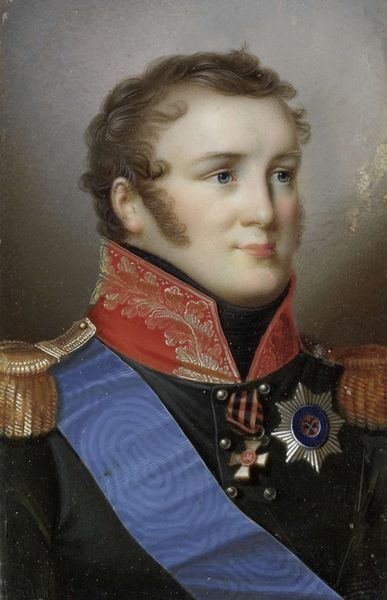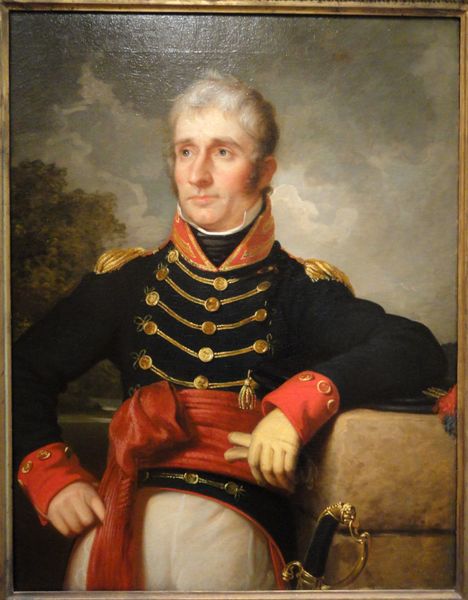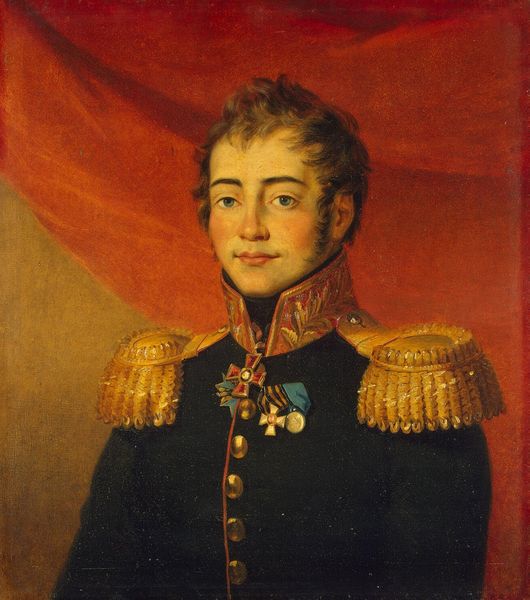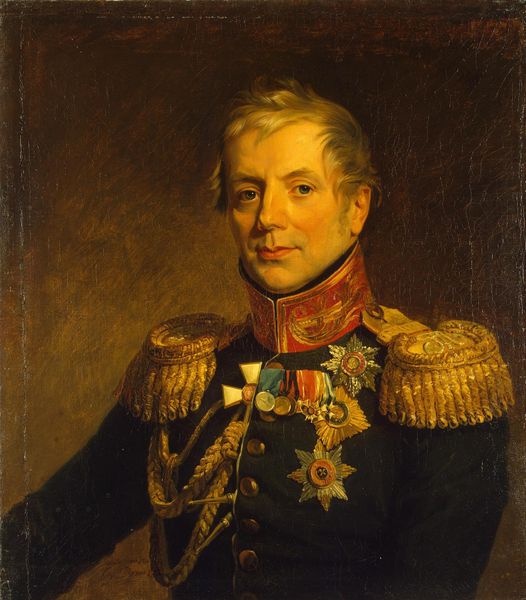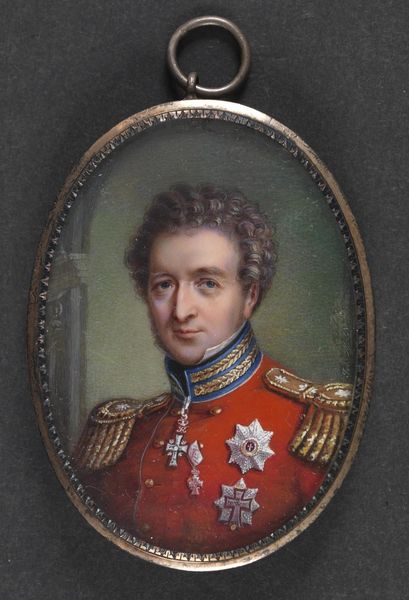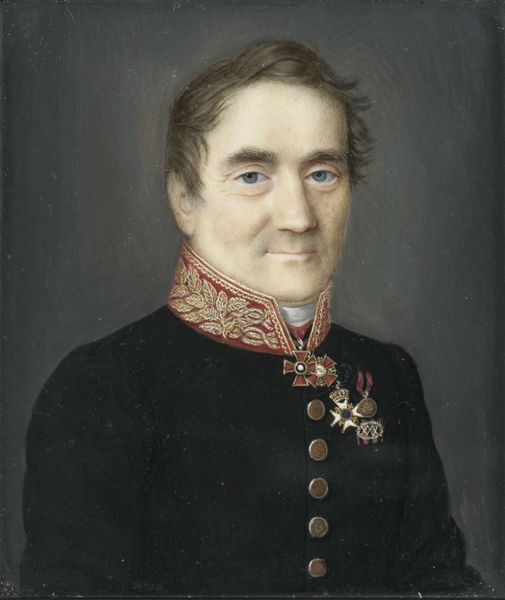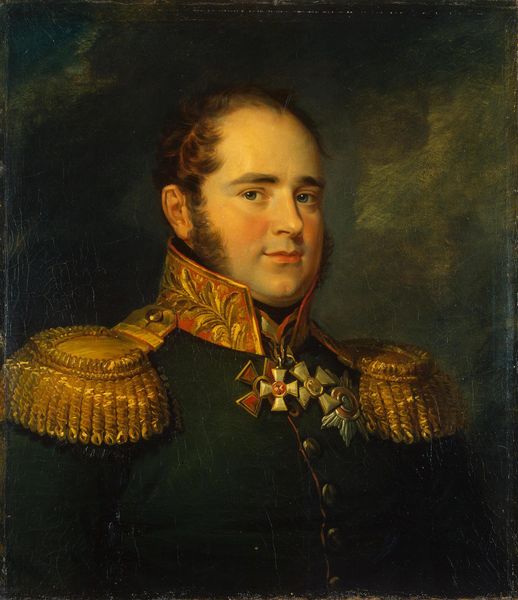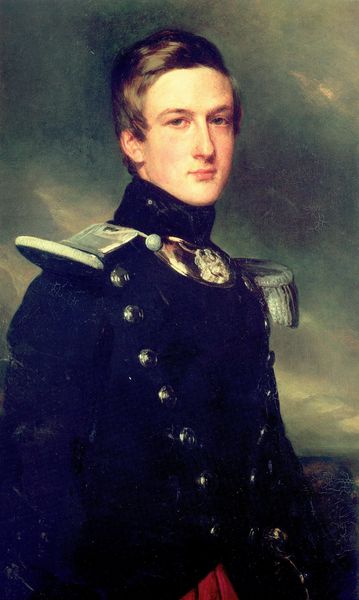
Carel Hendrik Ver Huell (1764-1845), Vice-admiraal van de Bataafse vloot en Minister van Marine van de Bataafse Republiek, getooid met het officierskruis van het Legioen van Eer, hem verleend in 1804 1804
0:00
0:00
louismariesicardi
Rijksmuseum
painting, oil-paint
#
portrait
#
neoclacissism
#
portrait
#
painting
#
oil-paint
#
romanticism
#
academic-art
#
portrait art
#
miniature
Dimensions: height 6 cm, width 4.6 cm, height 7.6 cm, width 5.2 cm, depth 0.7 cm, height 11.2 cm, width 8.4 cm, depth 2.5 cm
Copyright: Rijks Museum: Open Domain
Editor: This miniature portrait from 1804 depicts Carel Hendrik Ver Huell. Painted by Louis Marie Sicardi, the oil on, presumably, panel, seems so delicate, but simultaneously assertive. It must have taken an incredible level of artisanal skill to achieve. What strikes you when you look at this piece? Curator: I immediately consider the raw materials – the pigments meticulously ground and mixed with oil, the panel carefully prepared. Sicardi’s labor is visible in every brushstroke, and that labour reflects the larger context of artistic production during the Napoleonic era. Consider where Sicardi might have acquired these resources; was it a highly localised activity? Editor: That’s interesting; I hadn't considered the geographic element. I was just seeing the artistry itself. What does focusing on the materials and labor tell us that we might otherwise miss? Curator: By interrogating the means of production, we disrupt the romantic ideal of the artist as a lone genius. The crafting of a portrait like this depended on a complex network of suppliers, apprentices, and patrons. This miniature served a particular function, too, circulating images of power and authority in a way mass production hadn't yet enabled. The gold frame is integral to its value, literally and figuratively, emphasizing the wealth and status it signifies. Editor: So the frame and the materials are also performing an action, not just 'being'? Curator: Precisely. Consider the societal forces that are in play. This portrait represents a certain kind of consumption, the commodification of image and status. How does understanding this change your initial reaction? Editor: I see how understanding the production process adds another layer. It is about skill, but also about the material conditions of the time. Thank you; I’ll certainly view similar works through a different lens now.
Comments
No comments
Be the first to comment and join the conversation on the ultimate creative platform.
